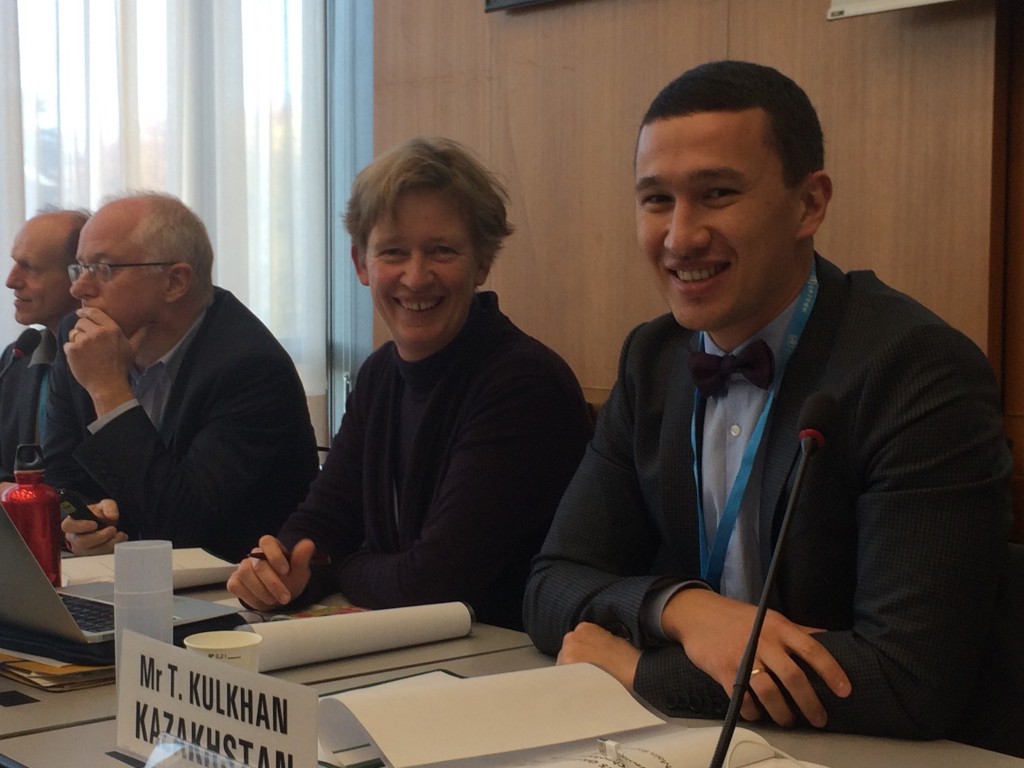ASTANA – A meeting of the council of international experts held Nov. 2-3 at the World Health Organisation (WHO) headquarters in Geneva served as an opportunity to discuss the World Health Assembly resolution on the use of Health Technology Assessment (HTA) for universal health coverage and reimbursement systems. Kazakh Centre for Healthcare Standardisation deputy head Temirkhan Kulkhan was the nation’s sole representative at the council.
“Most of the recent technological advances in medical science allow health workers to diagnose and treat disease in a way that was impossible before. Besides the obvious advantages, this development in the industry leads to an increase in expenses, which determines the critical importance of the analysis of that issue in health policy, especially taking into account the limited budget for these purposes,” said Kulkhan in a recent interview with The Astana Times. “In the context of the global crisis, the document discussed has a strategic importance for the effective and efficient financing of the health sector in developing countries.”
HTA refers to the systematic evaluation of properties, effects and/or impacts of health technology, according to the WHO website. It is a multidisciplinary process to evaluate the social, economic, organisational and ethical issues of health intervention or health technology. The main purpose of conducting an assessment is to inform a policy-making decision.
The National Centre of Healthcare Development’s centre for healthcare standardisation compared the technology costs, once implemented, with the benefits to the welfare of the population. According to Kulkhan, it is much more efficient to carry out a comparative study as a starting point to better understand which technologies work best, which are the most cost-effective and under what circumstances. The study should also to assess a wide range of potential benefits outside the clinical or therapeutic benefit, including monetary value, improvements to the quality of care, quality of life, increased health care efficiency and greater opportunities for labour activity after receiving medical care. If such studies show a positive effect on health care costs, they can be used to inform policy makers of the Kazakh Ministry of Health and Social Development, as well as research institutes and scientific centres.
“Comparative research of effectiveness and health technology assessment is used to support the implementation of technologies that have a positive therapeutic effect in practice and present reasonable value for the money. On the other hand, the use of low-performing, outdated technologies should be lowered by reducing their capitalisation or by restrictions on their use. It should be based on evidence-based medicine, combining financial incentives for providers and consumers which can significantly reduce the level of government spending on reimbursement of medical organisations, if such incentives will support the increased use of more cost-effective services,” said Kulkhan.
“It is important to carefully monitor the impact of such policy tools to keep track of the optimum financing of the industry without ignoring innovation. In addition, such measures must not run counter to other aspects of health policies and practices that divert a significant part of health care costs, including initiatives to support healthy aging and improve the coordination of care for chronic patients,” he added.
WHO conducted a special survey among its member states this year to evaluate the status of their health technology assessment, as well develop the database of national HTA focal points and establish HTA country profiles. The survey is based on 125 national HTA focal points and the answers of 111 respondents. Kazakhstan began cooperating with the WHO in the matter in June and information on Kazakhstan’s activities prepared by the National Centre for Healthcare Development was presented by Kulkhan at the 2015 HTA international conference in Norway. The final report will be available this month.



